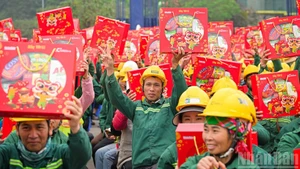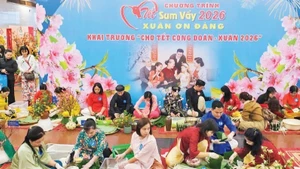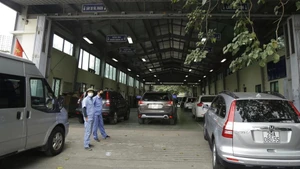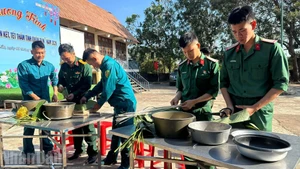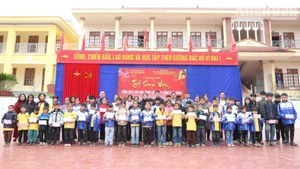July 15 marked World Youth Skills Day 2024, with the theme "Youth Skills for Peace and Development", once again continuing to emphasise equipping young people with vocational skills and opportunities to help them proactively enter the labour market, establish and develop their careers, thereby contributing to a future of peace, prosperity and sustainable development.
In Vietnam, recent research results show that workers who receive vocational training and education have higher employability, income and job satisfaction than those who do not.
Currently, vocational education institutions have focused on fostering, evaluating, and developing vocational skills for young workers according to business needs, coordinating with businesses to recognise, recruit, use, and pay wages and salaries to students and graduates, based on skills and practice capacity.
It can be seen that workers with vocational training and education are better equipped to adapt to new digital technologies, their employability and competitiveness are improved, and they can cope with the economic challenges caused by the pandemic and are more likely to maintain employment than those without training.
Many international organisations also believe that workers' vocational skills will be the "new international currency" in the future labour market because it brings better competitiveness capacity and labour productivity.
According to the Vocational Education Development Strategy for the 2021-2030 period, with a vision to 2045, the goal to strive for by 2030, will be to focus on improving the quality and effectiveness of vocational education, to meet the country's needs for human resources with vocational skills, proactively participating in the international human resource training market, and contributing to increasing the rate of trained workers with degrees and certificates to 35-40%.
It can be seen that vocational skills development activities for Vietnamese youth aim to rapidly develop vocational education to meet the diverse needs of the labour market, the people and the increasing requirements for the quantity, structure and quality of human resources with vocational skills for national development. It is considered one of the important tasks in developing vocational education.
In response to World Youth Skills Day 2024, the General Department of Vocational Education (Ministry of Labour, War Invalids and Social Affairs) has requested vocational education institutions and vocational skills assessment organisations to enhance communications, raise awareness of the meaning, role, and value of vocational education, develop professional skills for pupils and students in promoting creativity, associated with the implementation of equity and social progress, ensuring social security.
With that, vocational education institutions discover, praise and promptly reward organisations, individuals, communities, businesses and partners, that have made effective and practical contributions to training and developing vocational skills for young people.
Vocational education institutions need to focus on innovating training programmes and methods, linking vocational education with businesses and the labour market, strengthening the capacity of the evaluation and the national certification system for vocational skills, and innovating training methods according to an open, diverse and flexible education model associated with the national qualifications framework and the labour market.
It is also necessary to prioritise developing qualities, forming core skills, soft skills, digital skills, and foreign language proficiency for learners, develop plans for training, fostering, evaluating and developing vocational skills for young workers according to business needs, and coordinate with businesses to recognise, recruit, use, and pay wages and salaries to students and graduates based on skills and practice capacity.
In addition, relevant agencies also need to strengthen and expand international cooperation on vocational skills development for young people to have more resources and experience in building and implementing skills development policies and programmes that can approach international standards, to improve the quality of human resources and the mobility of youth human resources in the domestic and international labour market during the integration process.



